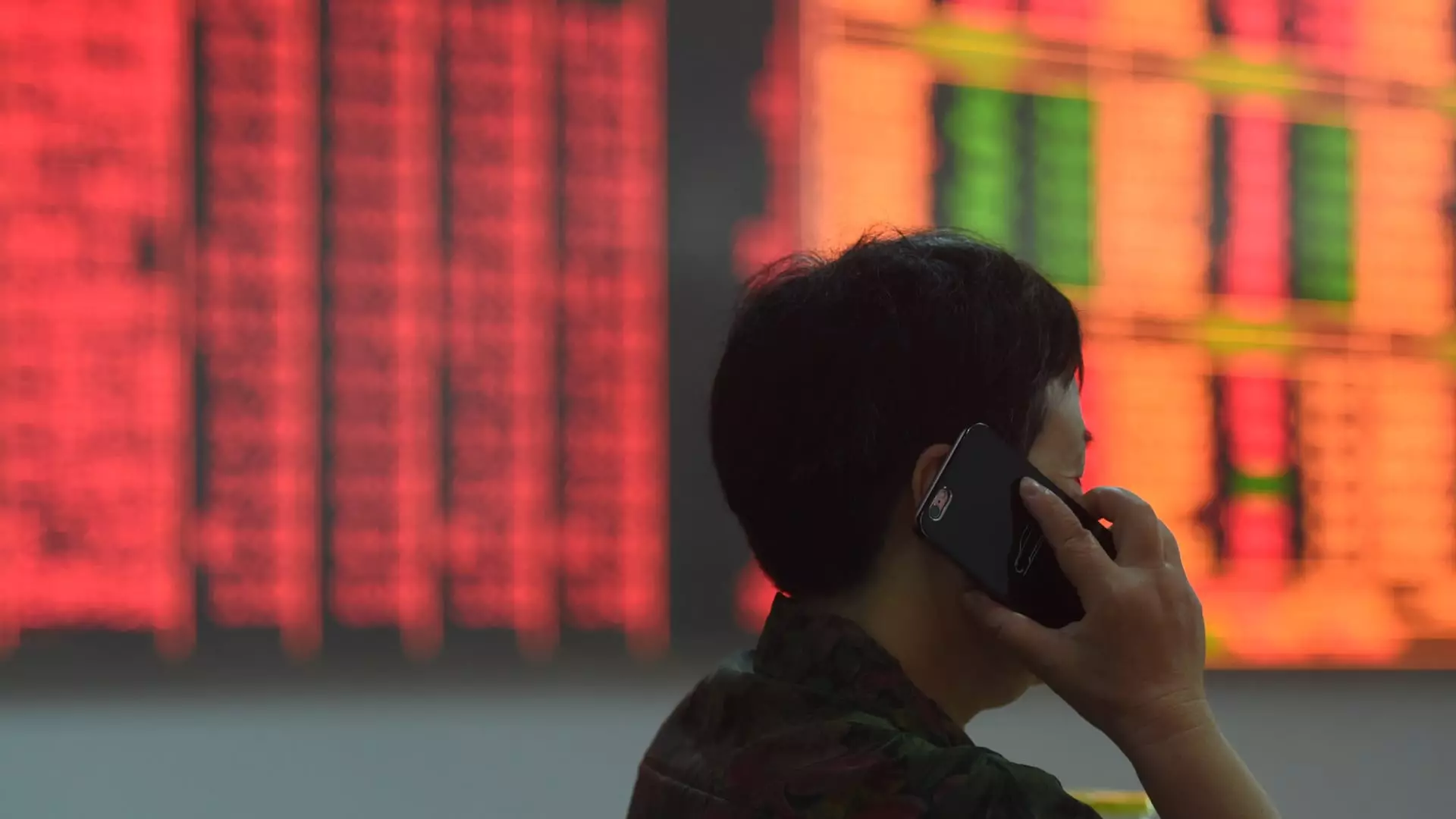As the world’s second-largest economy, China’s economic health is intricately linked to global financial markets. Recently, the landscape has been clouded by stagnation, primarily due to a severe downturn in the real estate sector. Recent data indicates that retail sales have only marginally increased by over 2%, while industrial profits have stagnated for the first eight months of the year. The ramifications of these statistics stretch beyond mere numbers; they reverberate through consumer confidence and investor sentiment alike. Analysts currently reflect a cautious optimism marked by the potential for growth yet constrained by underlying issues that remain unresolved.
The recent Politburo meeting, presided over by President Xi Jinping, has sparked discussions concerning its implications for the future trajectory of China’s economy. The meeting’s call to action—prioritizing the cessation of the property market’s decline and reinforcing both fiscal and monetary policies—has resonated positively with market investors, leading to a notable rise in the Shanghai Composite Index. However, analysts argue that mere policy declarations are insufficient; specifics matter. Ting Lu, chief China economist at Nomura, emphasized that well-formulated, strategic policies are imperative to tackle the deeply rooted economic problems that have proliferated over the last few years.
This strategic overview illustrates a recognition from the leadership regarding the gravity of the economic landscape. However, it also highlights the limitations of a patchwork policy response in the face of complex issues such as the protracted slump in the property market, which is now entering its fourth consecutive year of contraction. Lu estimated that even with additional stimulus measures, the projected impact on China’s annual GDP may not surpass 3%, underscoring the necessity for a more comprehensive approach.
In a further attempt to invigorate the economy, the People’s Bank of China has announced significant interest rate cuts along with proposals to reduce rates for existing mortgage holders. However, these initiatives have not sufficiently assuaged consumer anxieties about borrowing. Paul Christopher, head of global investment strategy at Wells Fargo Investment Institute, pointed out that the psychological barriers consumers face in taking on debt remain palpable. The prevailing sentiment among financial institutions appears skeptical regarding Beijing’s commitment to implementing the necessary stimulus to cultivate a more robust consumer confidence framework.
Additionally, various sectors of the Chinese economy, including after-school tutoring and gaming, have faced governmental crackdowns over recent years. Despite a gradual easing of such restrictions, the recovery of consumer sentiment has been tepid. Interestingly, the relationship between U.S. monetary policy and China’s economic strategy is also noteworthy. The Federal Reserve’s recent shift toward easier monetary policies has ostensibly provided the People’s Bank of China with more room to maneuver, yet the underlying issues that plague domestic consumption and investment persist.
The recent rally in the Chinese stock market has been robust, bringing some much-needed positivity amid ongoing systemic issues. The CSI 300 stock index is anticipated to continue its upward trajectory, potentially marking its most profitable week since 2008. This optimism is bolstered by insights from analysts like Laura Wang, who project a further 10% increase in the market soon. However, such analyses do not escape scrutiny, as the sustainability of this rally raises fundamental questions.
Shehzad Qazi, COO at the China Beige Book, cautioned against overly optimistic expectations. Although he expressed hope for a slight uptick in retail sales, the partial nature of the wealth effect from stock gains cannot overshadow the looming challenges within the property market. The disheartening reality remains that any transient wealth accumulation from stock or property investments cannot counterbalance the overarching decline in property values.
While the Chinese government’s recent policy announcements may signify a step toward addressing some of the pressing economic concerns, the efficacy of these measures hinges on their execution and the long-term commitment to reform. The dual challenges of restoring consumer confidence and stabilizing the real estate sector will require a sustained and strategic approach rather than reactive measures.
For global investors, the sentiment shift sparked by recent developments should be approached with caution. The excitement generated from stock market rallies and policy announcements may provide a temporary lift, yet the groundwork for robust, sustainable growth necessitates well-designed, actionable policies. As the situation evolves, stakeholders must remain vigilant in assessing the unfolding complexity of China’s economic environment, ensuring that optimism does not overshadow the fundamental issues requiring resolution.

